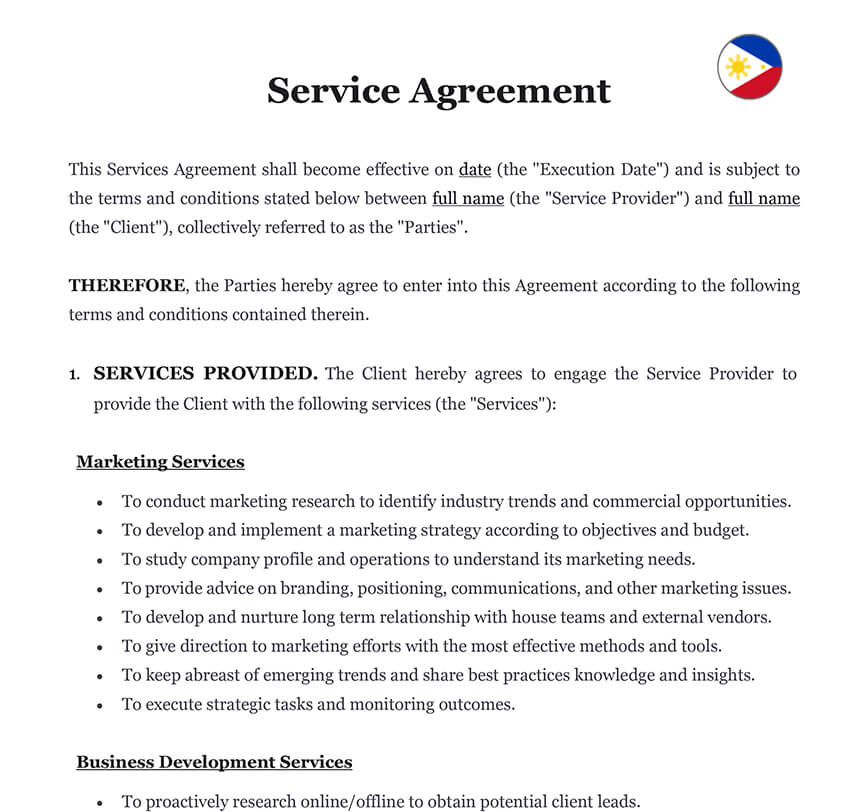Why is it important to have contracts when selling products and services in the Philippines?
When engaging in the sale of products and services in the Philippines, having well-drafted contracts is crucial for several reasons. Firstly, contracts provide a legal framework that outlines the rights, obligations, and expectations of both parties involved in the transaction. By clearly defining the terms and conditions, contracts help prevent misunderstandings and disputes that may arise during or after the sale.
Secondly, contracts ensure that both the buyer and the seller are protected. They help safeguard the interests of both parties by establishing warranties, limitations of liability, and dispute resolution mechanisms. This provides a level of security and confidence in the business transaction.
Moreover, contracts are essential for enforcing legal remedies in case of breach or non-performance by either party. They serve as evidence of the agreement and can be presented in court if necessary. Having a written contract also adds credibility to the transaction and enhances the professionalism and trustworthiness of the parties involved.
What are the different types of contracts used for selling products and services in the Philippines?
When selling products and services in the Philippines, several types of contracts can be used depending on the nature of the transaction. Some common types of contracts include:
1. Sales Contracts: Sales contracts outline the terms and conditions of the sale of goods, including details such as the description of the products, quantity, price, payment terms, delivery terms, and warranties.
2. Service Contracts: Service Agreements are used when selling services rather than physical goods. They define the scope of the services to be provided, the timeline, compensation, and any other relevant terms and conditions.
3. Distribution Agreements: These contracts are commonly used when appointing distributors or resellers to sell products on behalf of the seller. Distribution agreements specify the rights and obligations of both parties, territory restrictions, pricing, marketing support, and termination provisions.
4. Franchise Agreements: In the case of franchising, franchise agreements are used to grant the right to operate a business under the franchisor’s established brand and system. These agreements cover various aspects such as fees, territory, intellectual property rights, training, and ongoing support.
5. Licensing Agreements: Licensing agreements are used when granting someone else the right to use intellectual property, such as trademarks, copyrights, or patents, in exchange for royalties or licensing fees. These agreements specify the terms of use and restrictions.
It’s important to note that the specific terms and conditions of these contracts can vary depending on the nature of the business, industry, and parties involved. Seeking legal advice is advisable to ensure that the contracts are properly drafted and tailored to meet the unique requirements of the transaction.
How can you draft a solid sales contract for selling products and services in the Philippines?
Drafting a solid sales contract for selling products and services in the Philippines requires careful consideration of the terms and conditions that protect the interests of both parties involved. Here are some key steps to follow:
Step 1. Identify the Parties
Clearly state the legal names and contact information of the buyer and seller involved in the transaction. This ensures that both parties are accurately identified and can be held accountable.
Step 2. Define the Products or Services
Provide a detailed description of the products or services being sold, including specifications, quantity, quality standards, and any additional features or customization.
Step 3. Outline the Payment Terms
Specify the agreed-upon price, payment method, currency, and any applicable taxes or fees. Include information on installment payments, deposit requirements, or milestones, if applicable.
Step 4. Establish Delivery Terms
Clearly define the terms of delivery, including the delivery location, shipping method, and responsibility for shipping costs. Outline any expected delivery dates or timelines.
Step 5. Include Warranties or Guarantees
Determine the warranties or guarantees provided by the seller, such as product warranties or service quality guarantees. Specify the duration and conditions for these warranties.
Step 6. Address Intellectual Property Rights
If applicable, address any intellectual property rights related to the products or services being sold. Specify the rights granted, restrictions, and any usage or licensing fees.
Step 7. Include Termination and Dispute Resolution Clauses
Define the conditions under which either party can terminate the contract. Include provisions for resolving disputes, such as mediation or arbitration, to avoid costly litigation.
Step 8. Seek Legal Review
It is highly recommended to have the sales contract reviewed by a qualified legal professional experienced in Philippine contract law. Themis Partner can help you ensure compliance with Philippines Law.
What are the essential terms and conditions that should be included in a contract for selling products and services?
When creating a contract for selling products and services in the Philippines, it is crucial to include certain essential terms and conditions to safeguard the interests of both parties involved. These include clearly identifying the buyer and seller, providing a detailed description of the products or services, specifying the price and payment terms, defining the delivery terms, addressing warranties or guarantees, outlining intellectual property rights, including provisions for termination and dispute resolution, and specifying the governing law and jurisdiction. It is important to customize these terms and conditions according to the specific transaction and seek legal guidance to ensure compliance with Philippine laws and regulations.
What legal considerations should be taken into account when creating contracts for selling products and services?
When creating contracts for selling products and services in the Philippines, it’s crucial to consider the following legal aspects to ensure compliance and protect the rights of both parties involved:
1. Contract Validity: The contract should meet the legal requirements for validity, including mutual consent, capacity of the parties, and lawful object. Make sure the contract is not against public policy or prohibited by law.
2. Consumer Protection: If selling to consumers, be aware of the Consumer Act of the Philippines, which provides certain rights and protections for consumers. Ensure that your contract aligns with consumer protection laws and does not contain unfair or unconscionable terms.
3. Data Privacy: If collecting and processing personal data, comply with the Data Privacy Act of 2012. Implement appropriate data protection measures and include provisions in the contract to protect the privacy and security of personal information.
4. Intellectual Property: Respect intellectual property rights when selling products or services. Ensure that you have the necessary licenses, permissions, or rights to use any copyrighted materials or trademarks. Include provisions to protect intellectual property rights in the contract.
5. Compliance with Laws and Regulations: Be aware of relevant laws and regulations specific to your industry or the type of product or service being sold. Ensure that your contract does not violate any applicable laws and includes provisions to comply with relevant regulations.
6. Limitation of Liability: Include clauses that limit your liability for certain circumstances, such as product defects or service failures, to the extent allowed by Philippine law. However, be cautious not to exclude or limit liability for gross negligence or intentional misconduct.
7. Indemnification: Consider including indemnification clauses that protect one party from liabilities or damages caused by the other party’s actions or omissions. Clearly define the scope of indemnification and the procedure for making indemnity claims.
8. Severability and Entire Agreement: Include provisions stating that if any part of the contract is deemed invalid or unenforceable, the remainder of the contract remains in effect. Also, specify that the written contract represents the entire agreement between the parties, superseding any prior agreements or understandings.
It’s important to consult with a legal professional specializing in contract law in the Philippines to ensure that your contracts meet the necessary legal requirements and provide adequate protection for your business and its stakeholders.
How can working with a lawyer benefit you in creating contracts for selling products and services in the Philippines?
When creating contracts for selling products and services in the Philippines, partnering with a trusted law firm like Themis Partner can be highly beneficial. Lawyers specializing in contract law possess the expertise to ensure your contracts are legally sound, protecting your interests. With Themis Partner’s guidance, you can navigate the complexities of Philippine laws and customize contracts to meet your unique business needs. Additionally, utilizing recommended contract template websites can streamline the process, providing a starting point for your contracts. Remember, consulting with a lawyer is crucial to ensure compliance and create comprehensive contracts for successful business transactions in the Philippines.
Ask our Experts to draft an Employment Agreement tailored to your needs
310 client reviews (4.8/5) ⭐⭐⭐⭐⭐











